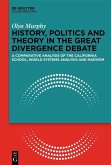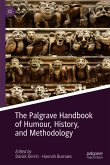This book provides a cultural history of cultivation theory, a North American mass communication paradigm best known for arguing that television violence was a potent agent of political socialisation. Decades after its inception, cultivation theory remains an evocative force in imagining twenty-first-century media power. This book reveals how many factors shaped the theory: the spectre of twentieth-century fascism, the Cold War, political turbulence in 1960s America, and the realisation that television had profoundly altered the rhythms of social and political life. The book also explains how cultivation theory became a means of analysing diverse media influences, thanks to various scholars who brought different motivations, perspectives and skills to the project. Cultivation theory succeeded because its practitioners related their work to the changing political moods of post-war America. In doing so, they created a unique critical perspective within mass communication research, which continues to shed light on the role media play in political conflict.
Andy Ruddock is Head of Communications and Media Studies at Monash University, Australia.
Dieser Download kann aus rechtlichen Gründen nur mit Rechnungsadresse in A, B, BG, CY, CZ, D, DK, EW, E, FIN, F, GR, HR, H, IRL, I, LT, L, LR, M, NL, PL, P, R, S, SLO, SK ausgeliefert werden.









